Nephrotic and Nephritic Syndrome
Nephrotic Syndrome Treatment in Mumbai
What Are Nephrotic & Nephritic Syndrome?
Your kidneys contain tiny filters called glomeruli. When these filters get damaged due to infection, autoimmune disease, or other causes they stop working properly. This damage can lead to two main conditions:
Nephrotic Syndrome: Causes heavy protein loss in urine, swelling in the body, and high cholesterol.
Nephritic Syndrome: Involves blood in the urine, reduced kidney function, and high blood pressure due to inflammation.
Both conditions need early attention to prevent long-term kidney damage.
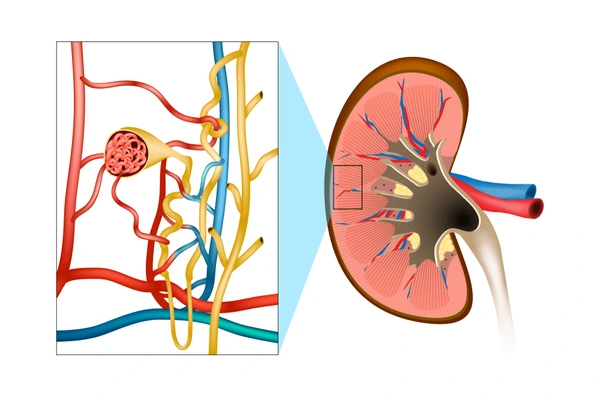
Symptoms of Nephrotic Syndrome
Symptoms of Nephrotic Syndrome
The signs often go unnoticed or are mistaken for something minor. But when your kidneys are involved, early symptoms matter. Recognizing symptoms of nephrotic and nephritic syndrome early gives you a better chance at protecting your kidney function and avoiding complications.
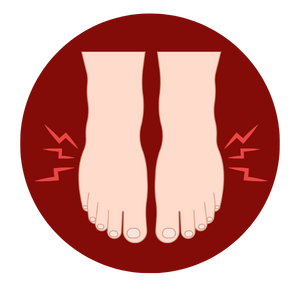
Swelling in the legs
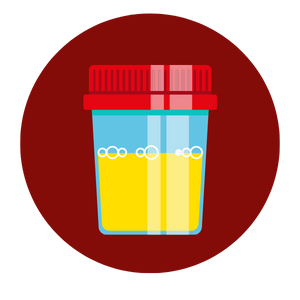
Foamy or bubbly urine
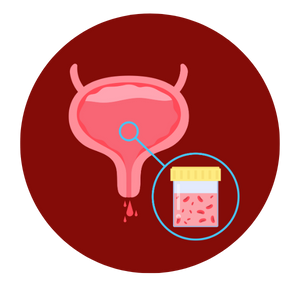
Blood in urine

Sudden weight gain
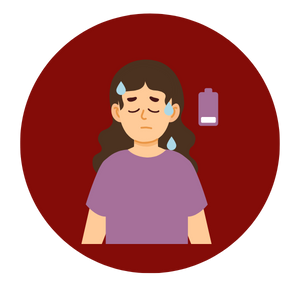
Fatigue or low energy
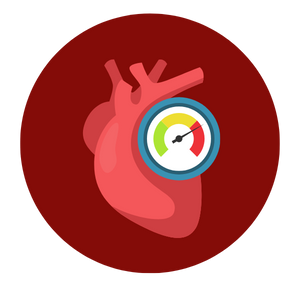
High blood pressure
SYMPTOMS OF NEPHROTIC SYNDROME
The signs often go unnoticed or are mistaken for something minor. But when your kidneys are involved, early symptoms matter. Recognizing them early gives you a better chance at protecting your kidney function and avoiding complications.
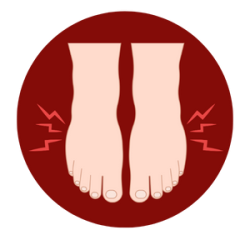
Swelling in the legs
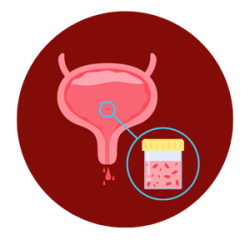
Blood in urine
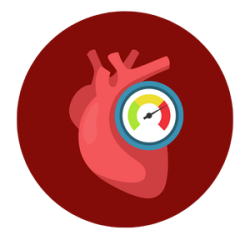
High Blood Pressure
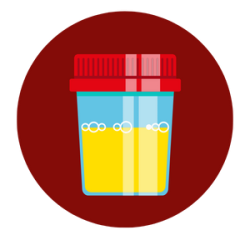
Foamy or bubbly urine
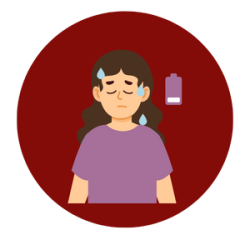
Fatigue or low energy

Sudden weight gain
Diagnosis for nephrotic and Nephritic Syndrome
Diagnosis begins with a detailed consultation, followed by these tests. Dr. Chandan takes time to explain each step, so you’re never in the dark about your condition.

Urine tests to detect protein and blood

Blood pressure monitoring

Blood tests to check kidney function

Kidney ultrasound or imaging
Treatment for Nephrotic Syndrome
Medications to Control Inflammation
Steroids or immunosuppressants are used to reduce swelling and stop further damage to the kidney filters.
Managing Blood Pressure & Cholesterol
Controlling these helps protect your kidneys and reduce strain on your heart and vessels.
Diet & Fluid Management
A low-salt, kidney-friendly diet helps reduce swelling, lower blood pressure, and prevent further complications.
Regular Monitoring & Follow-ups
Ongoing check-ups help track your kidney function, adjust treatment, and prevent future flare-ups.
Why Choose Dr. Chandan Chaudhari?
Dr. Chandan Chaudhari offers expert treatment for Nephrotic and Nephritic Syndrome, ensuring accurate diagnosis, effective medication plans, and continuous care for lasting kidney health.
Experience That Matters
With years of clinical experience, he provides compassionate and precise care for patients with complex inflammatory kidney conditions.
Qualified Expertise
Holding MBBS, MD, and DNB (Nephrology), Dr. Chandan is recognized for his advanced skills and evidence-based approach to kidney treatment.
Clear Guidance, Caring Support
He communicates every step clearly, helping patients understand their condition and treatment with confidence and comfort.
Trusted by Patients, Respected by Peers
Dr. Chandan is known for his calm behaviour, gentle care, and reliable decision-making in complex cases.
Frequently Asked Questions [FAQ's]
about Nephrotic and Nephritic Syndrome
We understand that kidney conditions can be confusing. Here are answers to some of the most common questions patients ask us.
Are these conditions permanent?
Not always. With early treatment, symptoms can improve and kidney damage can be slowed or even reversed in some cases.
What causes these syndromes?
They may be caused by infections, autoimmune diseases like lupus, certain medications, or underlying conditions like diabetes or high BP.
Will I need a kidney biopsy?
A biopsy is only needed if the cause isn’t clear from initial tests. It helps confirm the diagnosis and guide treatment more accurately.
Can children get Nephrotic or Nephritic Syndrome?
Yes. These conditions are seen in both adults and children. Nephrotic Syndrome is especially common in children and usually responds well to treatment.
Can I prevent these syndromes?
You can’t always prevent them, but managing diabetes, blood pressure, and avoiding harmful medications can reduce your risk.
Is it time for a kidney health check?
If you’re experiencing symptoms like swelling, foamy urine, or fatigue-don’t wait. The earlier we act, the better the outcome.
